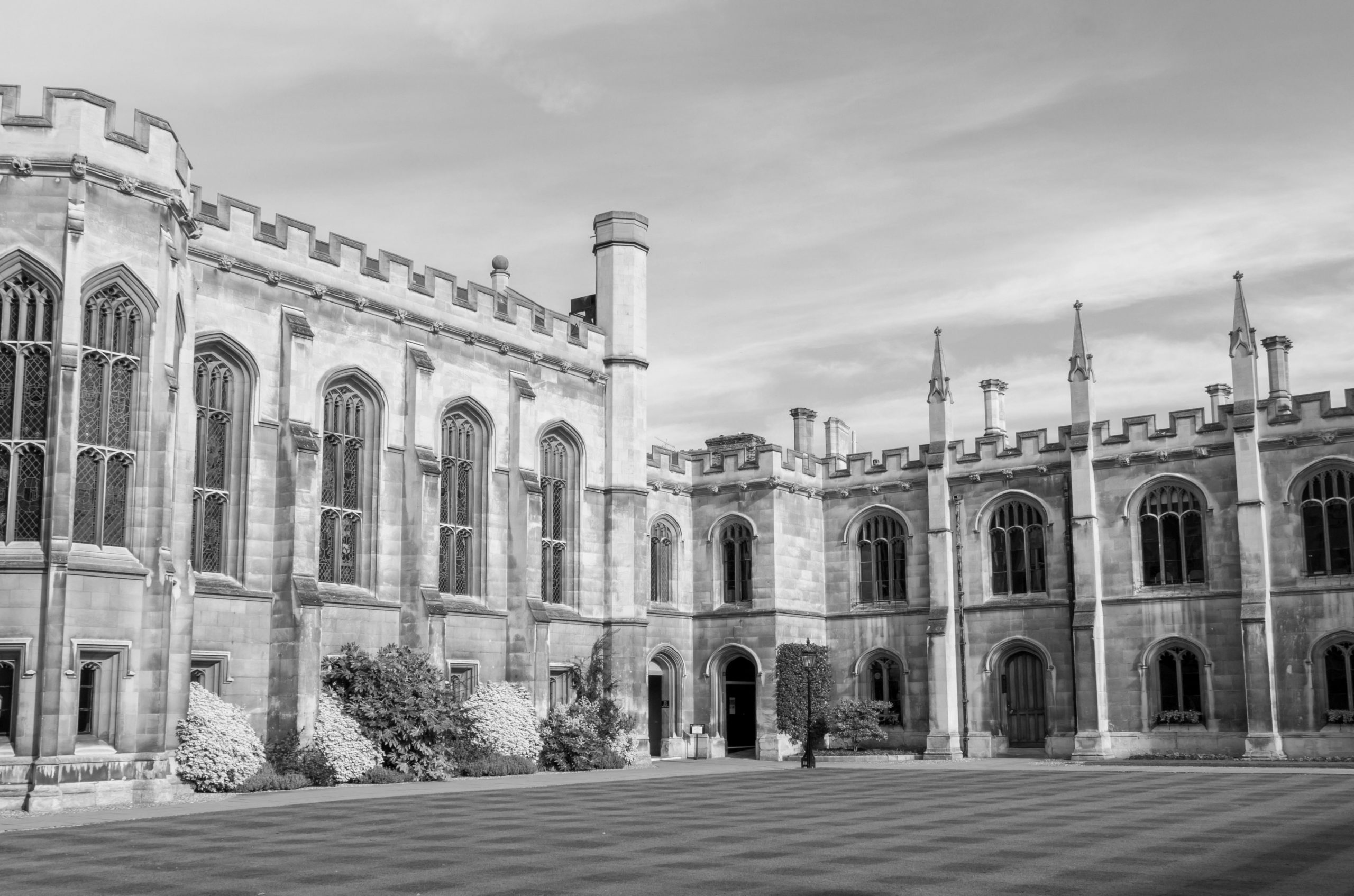Since 2013 I have been Bursar and a Fellow of Corpus Christi College, part of Cambridge University. Before that I spent 26 years in finance, predominantly in equity capital markets at Citigroup (where I led the ECM business for Europe, Middle East and Africa) and Schroders. Having moved to the Cambridge area it became increasingly difficult to sustain any quality of family life while giving the appropriate commitment to the business, so a second career beckoned, a generation after graduating in English from Queens’ College. As Bursar I look after the non-academic side of the college: investments, strategic and operational finance, our staff and the stewardship of our estate which has two campuses. Collectively the Bursars of the 31 colleges collaborate extensively to smooth interaction between the colleges (which are autonomous charities) and with the university. Corpus, founded in 1352, is one of the older and smaller colleges, with c.60 Fellows and 500 students. It has a more balanced mix between undergraduates and postgraduates than many others and is the only Oxbridge college founded by the guilds of its native town.
Working with the college’s Investment Committee to manage the endowment effectively is a critical part of the job. However most of my time is spent managing staff, helping out the Fellows wherever possible and looking after our extraordinary estate in the centre of town, where William Wilkins’ pride and joy, New Court, sits side by side with the more intimate medieval beauty of Old Court (we’re imaginative with names). I’m currently engaged in trying to fit a 21st century institutional kitchen into a 14th century building while making the overall project a conservation ‘win’. By and large I adored my time in the City but the view here beats Canary Wharf hands down and it is an extraordinary privilege to be able to play a part in sustaining the flourishing of Corpus and the university and the life- and world-changing opportunities they offer in teaching and research. It also exposes me to many issues relating to the region (demographics, planning, infrastructure and affordability) and the sector (access and its role in promoting social mobility, fees, pensions) that offer opportunity and frustration in varying measure. For a small community we have a very wide variety of people and circumstances to deal with so my day might begin with a discussion about site security and safety for a forthcoming student event with the Head Porter, move onto a pitch from a fund manager or a call with a member of the Investment Committee to discuss asset allocation and take a detour into the niceties of a Fellowship competition via a visit from the Senior Tutor. I will be writing a periodic column talking about the aspects of this mixture that are hopefully relevant to this readership.
It was encouraging to see support in the budget for the National Infrastructure Commission’s thoughtful and ambitious proposals for the Cambridge/Milton Keynes/Oxford arc. Sorting the byzantine network of local and regional authorities into entities that can turn words into railways, housing and tarmac will be an enormous challenge, as will achieving this without wholesale planning reform, but the prize is great; rail and expressway links open by 2030 and a million more new homes by 2050. Let us hope that this Adonis is not impaled on the tusks of parochialism.
Lord Heseltine swung into Cambridge recently and warmed to this theme, advocating the empowerment of regional mayors and unitary authorities as a powerful catalyst; maybe a little continental for some tastes, but his tendresse for grands projets did produce Canary Wharf and the M25. We are going to have to play even harder to our strengths to prosper post-Brexit, and the arc’s potent mix of world leading higher education, life sciences and technology commerce, research and innovation is one of them. Fulfilling work, somewhere pleasant to live that doesn’t cost 13 times the average salary and a reliable means of getting between the two is a good starting point for human flourishing. Yet a large number of people here seem consciously to relish turning their backs on this opportunity, preferring an alternative plan, seemingly based upon becoming a museum where the only growth industry is punt touting. These issues are of determining relevance to local employers. Most of our staff have been priced out of Cambridge. They work long hours with enormous dedication, often in shifts, and the chronic undersupply of affordable housing and sporadic public transport turn their journeys to and from work into a daily version of ‘Challenge Anneka’ as well as reducing our attractiveness as employers. Only housing and infrastructure can alleviate this. Of course we need to broaden the distribution of growth across the region (decent infrastructure and more housing will help achieve that) but please let’s play a strong hand smartly rather than punting off into sepia-tinted irrelevance.
Well done Oxford for raising £750m in a 100 year bond issue at a spread of 85 basis points over 2068 gilts. Many colleges and universities have now used the long term debt market, mainly via private placements. One puzzling aspect of the placements is the preponderance of US insurers over domestic institutions on the buy side (this is probably only true of the placements, not the rated bond). US institutions have more experience assessing endowed university credits and are extremely straightforward to work with. Nonetheless it seems bizarre that in a market where UK investors are only too happy to hoover up long term gilts however dreadful the prospective return, they should allow the chance to earn an extra spread on lowly geared, centuries-old institutions to slip across the Atlantic.







